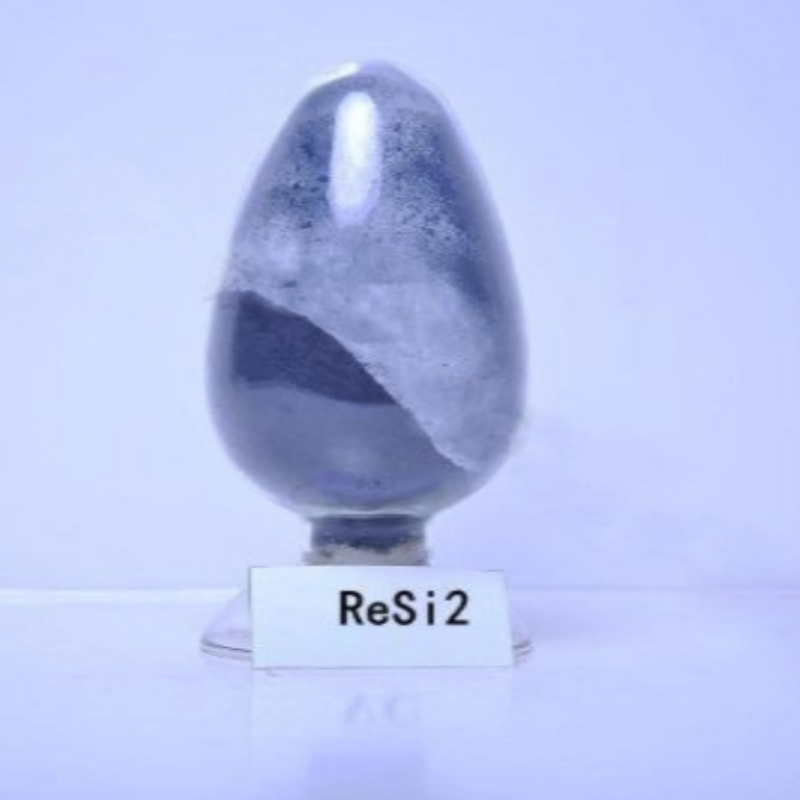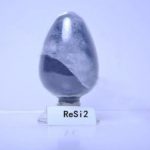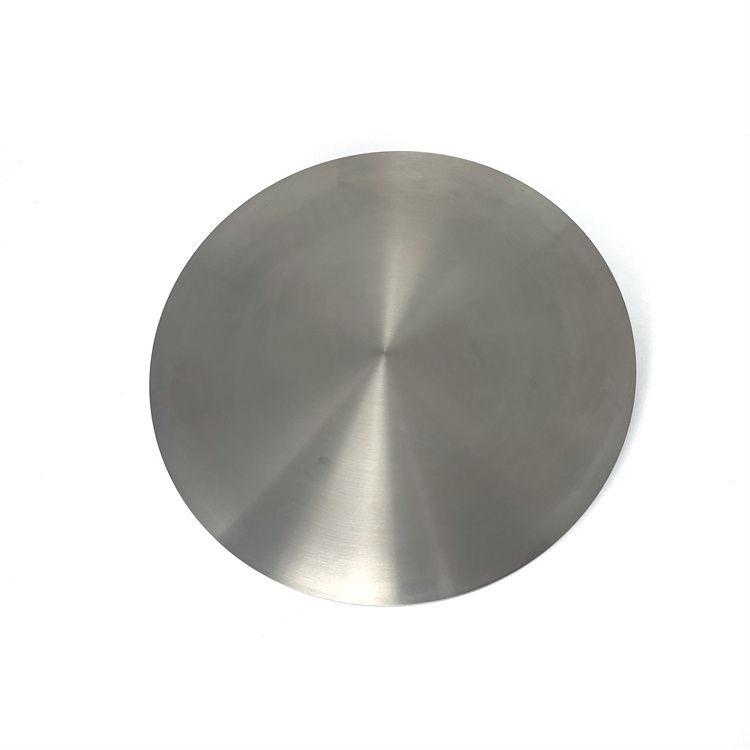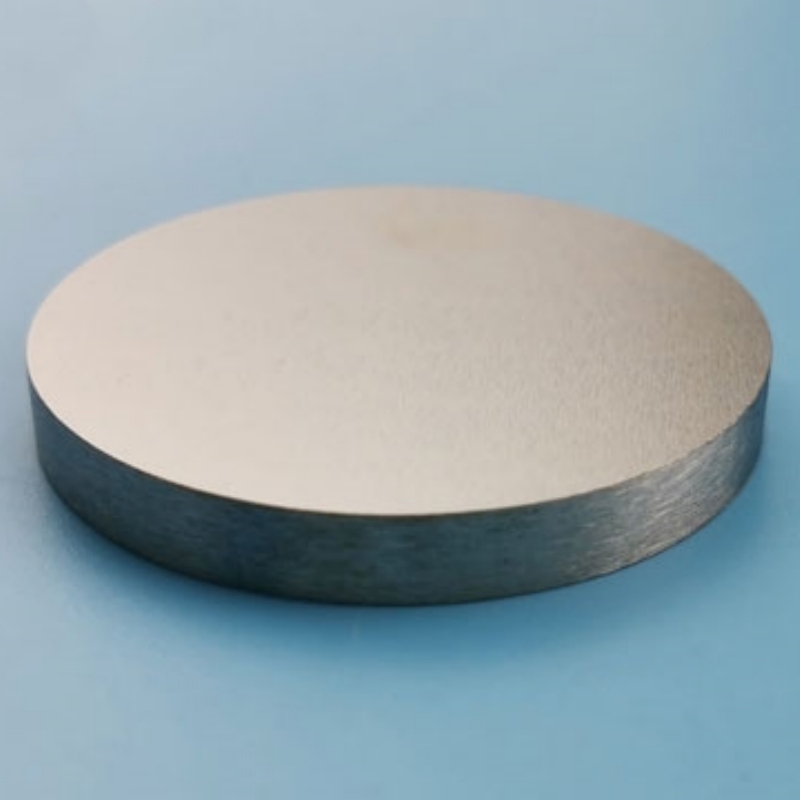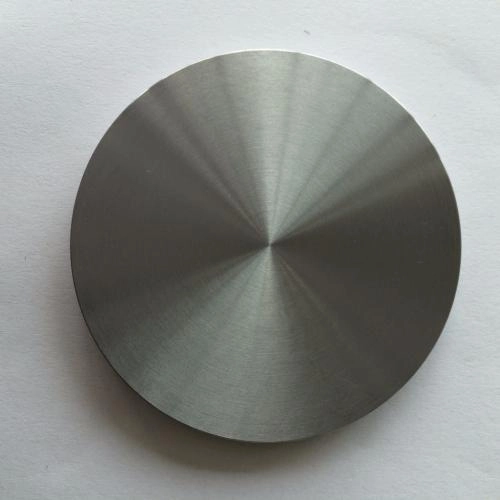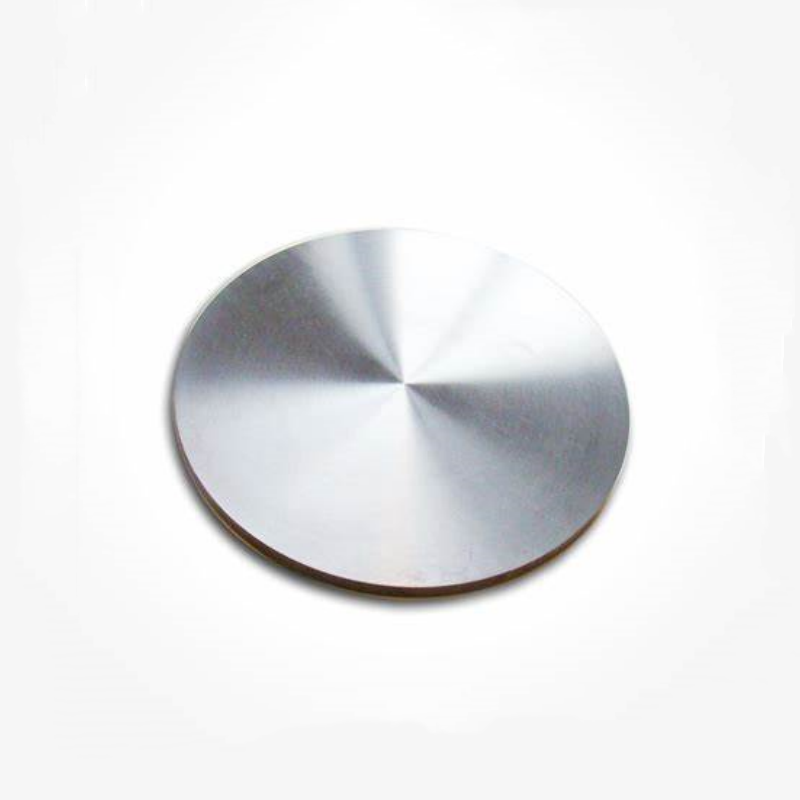Dysilicon rhenium (ReSi₂) is a high-purity intermetallic compound recognized for its outstanding thermal stability, electrical conductivity, and resistance to oxidation. It is commonly used in advanced semiconductor technologies, high-temperature coatings, aerospace applications, and specialized electronic components. With superior durability in extreme environments, dysilicon rhenium plays a critical role in scientific research, precision manufacturing, and energy conversion systems.
Product Overview
Dysilicon rhenium (ReSi2) is a compound consisting of rhenium and silicon, known for its excellent high-temperature performance and oxidation resistance. With a high melting point (2000°C) and high density (10.661 g/cm³), it is an essential material in the nuclear, aerospace, and superconducting materials industries. ReSi2 maintains exceptional stability in high-temperature environments and is widely used to enhance the creep strength of alloys and provide better temperature adaptability in high-pressure turbine operations.
Product Features
- High Melting Point:With a melting point of 2000°C, it is suitable for high-temperature operational environments.
- High Density:Its density of 10.661 g/cm³ ensures the strength and stability of the material.
- Excellent Oxidation and Corrosion Resistance:Demonstrates outstanding resistance to oxidation and corrosion in high-temperature and harsh environments.
- High Purity:With a purity of over 99.9%, it ensures superior material performance.
- Low Impurity Content:XRD testing confirms no impurity phases, ensuring high performance.
- Customizable Production:Tailored production to meet customer requirements, providing solutions for various applications.
Applications
- Nuclear Industry:Used in nuclear reactors as high-temperature materials to enhance heat resistance and stability.
- Aerospace:Applied in aerospace components, such as jet engine combustion chambers, turbine blades, and exhaust nozzles.
- Superconducting Materials:A key component in the development of new superconducting materials, improving superconducting properties.
- High-Temperature Alloys:Incorporated into nickel-based high-temperature alloys to enhance strength and durability in extreme conditions.
- Turbine Engines:Improves the operating temperature of high-pressure turbines, allowing stable operation at higher temperatures.
| Technical Parameters | Values |
| Name | Rhenium Disilicide (ReSi₂) |
| Molecular Formula | ReSi₂ |
| Density | 10.661 g/cm³ |
| Melting Point | 2000 °C |
| Purity | >99.9% |
| Oxygen Content | ≤0.5% |
| Nitrogen Content | ≤0.05% |
| Carbon Content | ≤0.05% |
| Silicon Content | 20.8-23.2% |
| Particle Size | -325 mesh |
| Remarks | Custom production available upon request |
 new material
new material

